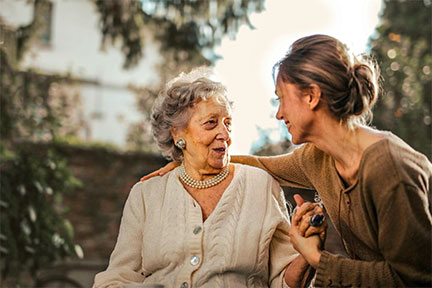
With the global senior population expanding rapidly, the need for specialized health care tailored to the elderly has never been more urgent. Seniors face a wide range of physical, cognitive, and emotional challenges that require informed and compassionate care. Occupational therapy (OT) plays a pivotal role in enhancing the quality of life for older adults by helping them remain independent and engaged in everyday activities.
Basic OT training may not always be sufficient to handle the complex and often overlapping health issues that seniors encounter. This is where advanced occupational therapy training comes in—empowering therapists with deeper knowledge, enhanced skills, and innovative strategies to better serve the elderly population. This blog explores how advanced OT training improves the overall healthcare experience for seniors, offering more personalized and effective support for their unique needs.
Specialized Skills for Complex Conditions
The journey to becoming an occupational therapist typically begins with a bachelor’s degree followed by hands-on experience in a healthcare setting. In the middle of this path, earning a masters in occupational therapy is a critical step that equips future therapists with both foundational knowledge and advanced clinical techniques. This education is especially important when working with seniors who often face multiple, overlapping health conditions such as stroke recovery, dementia, or chronic arthritis.
The program helps therapists learn to evaluate not just physical capabilities but also cognitive and emotional health, allowing for more tailored interventions. These specialized skills are essential for thoughtfully and effectively addressing the complex and dynamic needs of aging individuals.
Boosting Independence Through Adaptive Techniques
One of the central goals of occupational therapy is to help seniors retain their independence for as long as possible. Advanced training empowers therapists to teach adaptive strategies and recommend specialized tools that enable seniors to perform daily tasks more easily and safely. Whether it's using ergonomic kitchen utensils, installing voice-activated systems for home control, or training clients on techniques to dress themselves despite limited mobility, these adaptations help preserve dignity and self-reliance.
Therapists with advanced training are also more adept at identifying the precise barriers a senior faces and finding creative, practical solutions to overcome them. By promoting autonomy through targeted interventions, advanced OT fosters a greater sense of confidence and purpose in older adults.
Improved Fall Prevention and Home Safety
Falls are among the most common and dangerous health risks for seniors, often leading to hospitalizations, long-term disability, or even death. Advanced OT training places strong emphasis on fall prevention and home safety assessments. Therapists learn to evaluate living environments with a critical eye, identifying risk factors such as poor lighting, slippery surfaces, and obstructive furniture. They are trained to recommend effective modifications like grab bars, non-slip flooring, and rearranged furniture layouts.
Beyond environmental changes, therapists also implement strength and balance training regimens to physically equip seniors with the tools they need to prevent falls. These proactive measures reduce the risk of injury and ease the anxiety many seniors feel about falling, thereby improving their quality of life.
Holistic Support for Emotional and Social Well-Being 
Advanced occupational therapy training doesn’t stop at physical health—it also emphasizes the importance of emotional and social wellness. Seniors often grapple with loneliness, depression, or anxiety, particularly if they are dealing with mobility restrictions or have lost loved ones. Therapists with higher-level training are prepared to address these issues by integrating meaningful social activities, mental wellness routines, and creative engagement into their therapy plans.
This might involve facilitating community involvement, introducing calming exercises like guided breathing, or using art and music as therapeutic tools. Such holistic care acknowledges the full human experience of aging and ensures that seniors feel seen, supported, and connected—not just physically treated.
Advanced occupational therapy training is a powerful asset in senior care. It equips therapists with the skills needed to manage complex conditions, foster independence, ensure safety, and promote overall well-being. As the senior population continues to grow, so too does the importance of investing in specialized training that ensures elderly individuals can age with dignity, autonomy, and optimal health.
